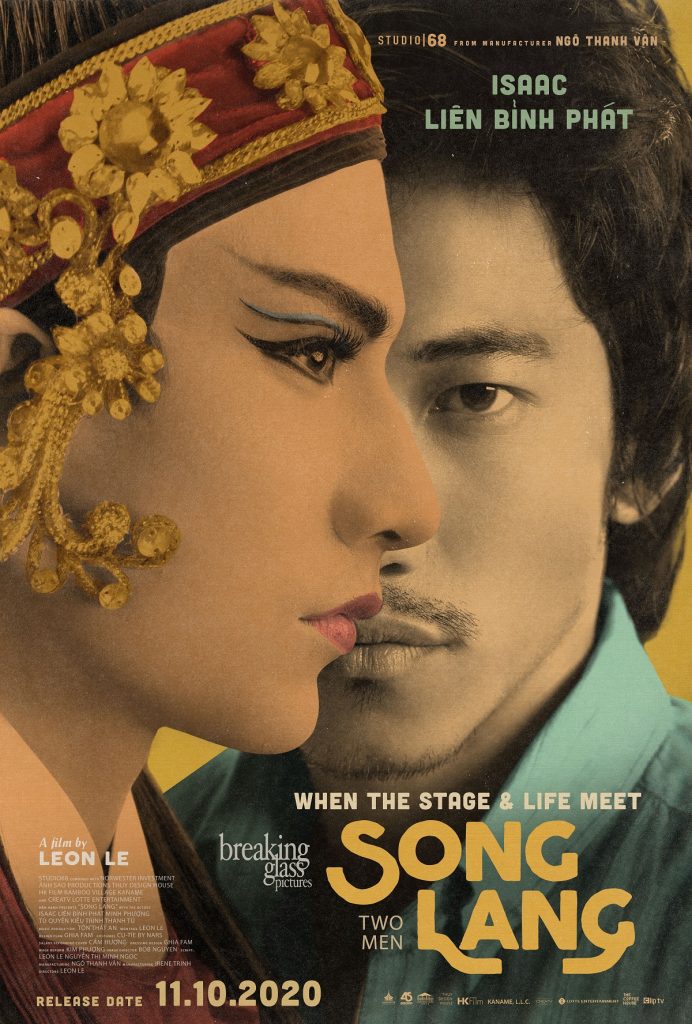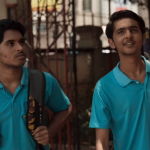‘Song Lang’ Review – An Incredibly Well-Shot Queer Romantic Tragedy

Song Lang ended up being one of the most well-shot films I have seen in a while. Yes, it’s not a happy queer story, but it’s still highly enjoyable.
I was provided with a free screener of Song Lang for review. The opinions I have shared are my own.
Five minutes into watching the screener I understood why director/writer Leon Le’s Song Lang was able to win an impressive number of awards as well as garner a positive response from the public. It isn’t just that the acting (which I will get to in a bit) was engrossing; in my opinion, each shot was perfect.
I don’t know about you, but sometimes when I’m watching a movie, I think about how a scene could have been framed differently. Did the camera really need to give us a close-up of a character’s face? Couldn’t a particular shot be filmed from a different angle?
With Song Lang, I didn’t have such questions. For me, every shot was captured masterfully. Did a scene between Dung ‘Thunderbolt’ (Lien Binh Phat) and Auntie Nga (Phuong Minh) have to be filmed from behind the bars of her office’s window? I think it had to be like that. Such a visual added an extra layer to showcase that Dung felt trapped by his profession.
Maybe I’m reading too much into it? But I don’t care.
As for the premise of Song Lang (the name of an instrument used in Vietnamese traditional music), the description reads:
Set in 1980’s Saigon, Song Lang is a gritty underworld noir hiding a tender, romantic heart. At the film’s core is the unlikely bond that develops between hunky, brooding Dung (Lien Binh Phat), a tough debt collector for a ruthless loan shark, and Linh Phung (V-pop star Isaac), a charismatic young opera singer for a struggling company that performs Cai-Luong, a modern form of traditional Vietnamese folk opera.
The two meet when Dung comes to forcefully collect a debt from the opera troupe, but when their paths cross again, a friendship develops, awakening surprising, tender feelings in both men. With his first feature film, director Leon Le has delivered a rich drama: a smoldering relationship between two apparent opposites–equally uncompromising–set against the backdrop of a gorgeous, fading art form.
The main characters Dung and Linh delivered with the required emotional beats. I liked how Dung felt a connection to Linh because of Dung’s past with Cai-Luong. He blamed the particular art form for destroying his family. Distancing himself from his passion led to a life of being a thug for Auntie Nga.
Even when Dung’s beating people up to make them pay their loans, there’s still some kindness in his heart. He doesn’t go overboard with violence. The scene he shared with the two little girls was quite emotional.
Meeting Linh helped Dung remember his childhood love for the arts and opened his eyes to there being another route for him to take. He didn’t have to continue working for Auntie Nga anymore. Also, what happened to a family (because they couldn’t pay up in time) really took a toll on him. Dung had to put an end to things.
With Linh around, Dung’s able to slowly show his true personality while Linh’s able to experience emotions that aided him in leveling up his craft while performing on stage. There’s definitely a romantic spark between the two even though they weren’t able to confess it to each other. Every scene where the male leads were together was rife with yearning. I loved it.
The themes of artistic freedom, love, and karma are quite obvious throughout Song Lang. Considering the time period, artistic expression (from what I could understand) was being censored. Content had to be about being patriotic. There’s state-run propaganda everywhere. The censorship led to Dung’s mother (an actress) leaving her family. In the present timeline, Linh’s theatre troupe was trying to offer an escape to the public.
Due to karma being an important thematic element and even Linh saying that being violent wasn’t something to be proud of, I think the film had to end the way it did. Offering a different ending would have felt like a cop-out.
I’m not a fan of queer content that’s all about being sad, yet it worked for Song Lang. It had to be done due to thematic reasons. In a manner, the real romantic tragedy wasn’t the one Linh was showcasing on stage every night, it was the one that occurred between him and Dung outside the theatre over the course of a few days.
Also, I can’t end this review without mentioning Auntie Nga. I really liked how she was written. There were shades to her character as well. She was kind enough to take a young Dung under her wings, yet, she wasn’t above using violence against those who had taken a loan from her business. Her line about how she didn’t force anyone to take a loan from her was quite powerful. And, in a sense, she was right. People knew what they were getting into when they came knocking at her door for financial assistance. She didn’t blame herself for their misfortunes.
Another thing I liked was how Dung and Linh’s female friends were written. Unfortunately, there are quite a lot of examples of queer films where the women have to deal with heartbreak when the men come out. Song Lang was different. Yes, Dung (bisexual, in my opinion) occasionally hooked up with his friend, but they both knew it was a “no-strings-attached” situation. So, Dung spending time with Linh wasn’t an issue for her.
Linh’s scene partner was also very supportive of him finding love. Thankfully, they didn’t share any romantic history to turn the situation messy.
Here’s hoping more queer films treat their women better.
For those interested, Song Lang was released at Laemmle theaters (virtually) on October 9, 2020. I highly recommend you check it out.
Here’s the link: https://www.laemmle.com/film/song-lang
Breaking Glass Pictures will make Song Lang available on DVD and Digital come November 11, 2020.
Again, I hope you consider watching this film.
Feel free to share your thoughts with us if you’ve already seen it!
Author: Farid-ul-Haq
Farid has a Double Masters in Psychology and Biotechnology as well as an M.Phil in Molecular Genetics. He is the author of numerous books including Missing in Somerville, and The Game Master of Somerville. He gives us insight into comics, books, TV shows, anime/manga, video games, and movies.
Help support independent journalism. Subscribe to our Patreon.
Copyright © The Geekiary
Do not copy our content in whole to other websites. If you are reading this anywhere besides TheGeekiary.com, it has been stolen.Read our






